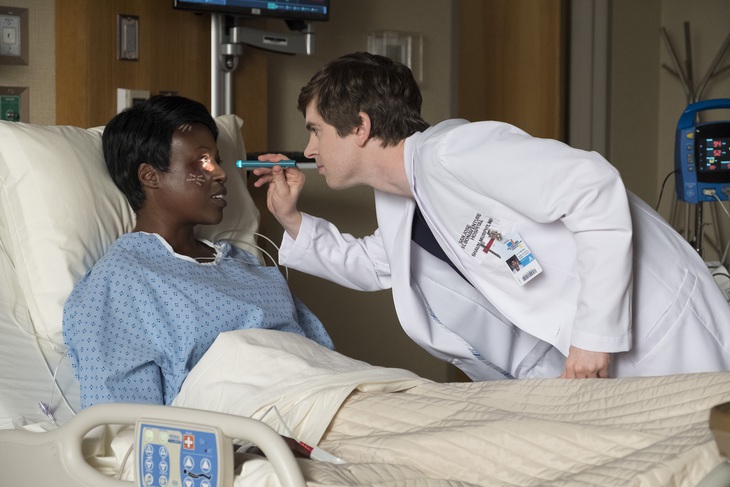
In the world of medical dramas, few shows have captivated audiences as deeply as South Korea’s Hospital Playlist and the American sensation The Good Doctor. Both series have earned legions of fans and critical acclaim, but in recent years, it’s The Good Doctor that has emerged as the unexpected frontrunner—reaching global audiences, dominating streaming platforms, and even spawning viral internet moments that transcend language and borders. What began as an adaptation of a Korean series has now become a worldwide phenomenon, overshadowing even its most respected peers.
The Good Doctor tells the story of Dr. Shaun Murphy, a brilliant young surgeon with autism and savant syndrome. Portrayed with incredible sensitivity by Freddie Highmore, Shaun’s journey through a challenging medical system, social barriers, and personal struggles has resonated with viewers in a way that feels both deeply human and universally relatable. While Hospital Playlist focuses on a group of long-time friends navigating life and medicine together with warmth and nostalgia, The Good Doctor delivers a sharper emotional punch—delving into identity, representation, and perseverance in a world that often misunderstands difference.
What truly sets The Good Doctor apart is its unique emotional gravity. Every episode presents not only high-stakes medical cases but also intense ethical dilemmas and raw personal growth. Viewers aren’t just watching surgeries and diagnoses—they’re being invited into the fragile world of someone who processes reality differently. Freddie Highmore’s performance is so compelling that many fans say they don’t see an actor playing a role—they see a real person trying to navigate an overwhelming world with grace and brilliance.
Meanwhile, Hospital Playlist offers a more relaxed, slice-of-life approach. It’s beloved for its warmth, humor, and the chemistry among its main characters. It evokes a sense of comfort, much like spending time with old friends. But where Hospital Playlist excels in familiarity and gentle storytelling, The Good Doctor excels in urgency, stakes, and emotional catharsis. It grabs the viewer by the heart and refuses to let go.

Another reason The Good Doctor has gained such global traction is its accessibility. Airing on a major U.S. network and widely available through international streaming services, the show has found fans across continents. The series has also become a viral sensation on platforms like TikTok and Twitter, with clips from the show—particularly Dr. Murphy’s passionate outbursts—generating millions of views. The famous “I am a surgeon!” scene has become a meme, a mantra, and a moment of pure drama that sums up the show’s raw intensity.
Critically, The Good Doctor also benefits from bold writing and fast-paced storytelling. Unlike the more meandering tone of Hospital Playlist, this series isn’t afraid to take risks. Characters are written off, love stories crash and burn, and moral gray areas are explored with uncomfortable honesty. It’s these unpredictable twists and high-emotion episodes that keep viewers coming back week after week, season after season.
And perhaps most significantly, The Good Doctor has helped break barriers around how autism is portrayed on screen. While some debate remains around accuracy and representation, there’s no denying that Shaun Murphy has brought a neurodiverse character into mainstream pop culture in a way that few shows ever have. For many viewers, it’s the first time they’ve seen a lead character with autism portrayed not as a sidekick or stereotype, but as a fully realized, dynamic human being. That in itself is groundbreaking.
In the end, comparing Hospital Playlist and The Good Doctor is a study in contrast: one is comforting, the other challenging; one leans on friendship, the other on individual triumph. Both are excellent, but The Good Doctor has proven itself to be more than a remake or an underdog. It has become a landmark medical drama—one that doesn’t just tell stories, but makes viewers feel every heartbeat.
